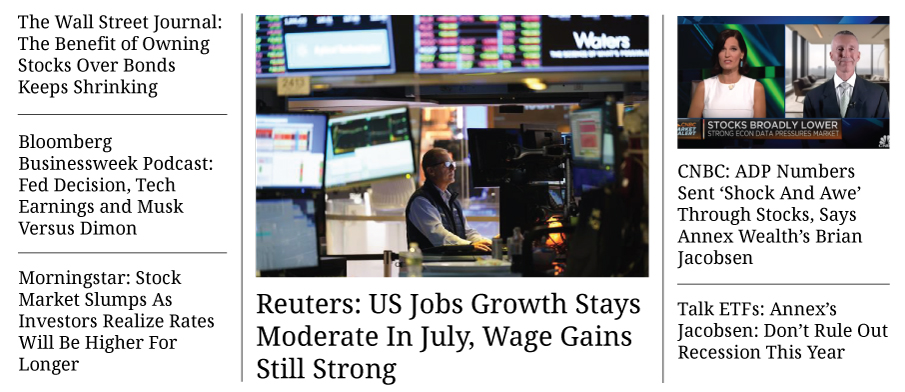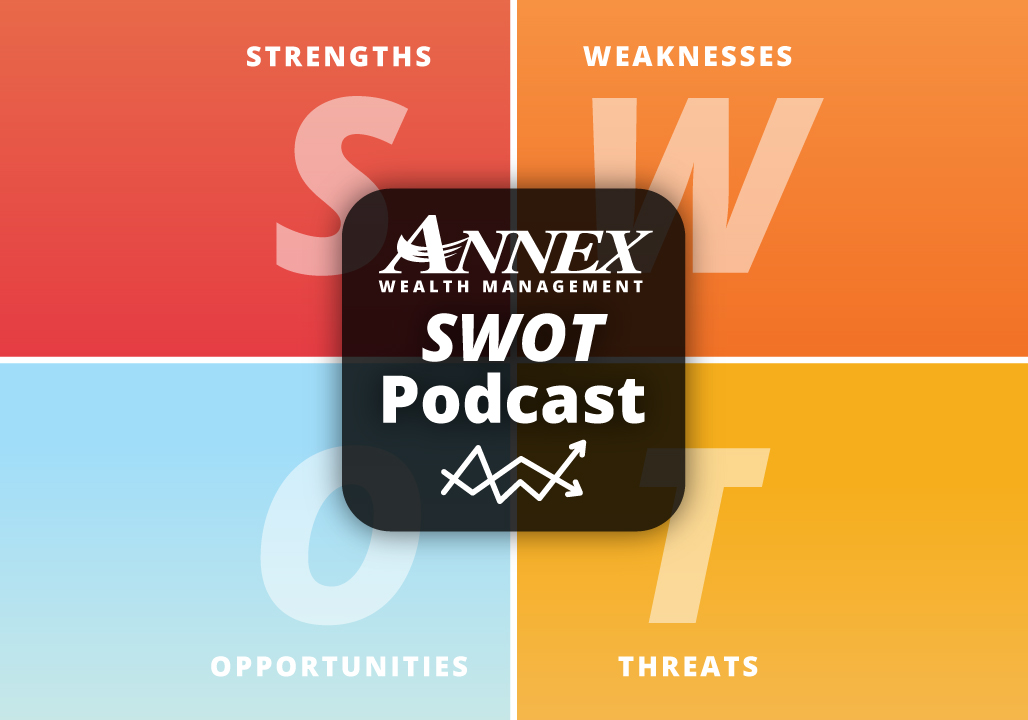
1. There Is An Alternative To Stocks 2. Do You Have A Will? 3. 11 Reasons To Consider Estate Planning 4. What’s The Difference Between A Will vs. A Trust? 5. Ask Us A Question! 6. “Planning is bringing the future into the present.” 7. Fortune Hunters & Gold Diggers
1 | Week In Review
US Debt was downgraded and earnings reports were mixed. Some simple math seems to show there is now an alternative to stocks. Annex Wealth Management’s Dave Spano and Derek Felske discuss.
2 | Poll Recap

Last week we asked our readers to tell us if they have a will in acknowledgement of August being National Make-A-Will Month.
There are many reasons to have a will, with one of the biggest being the fact that it provides peace of mind to you and your family. They’re meant to help anyone, regardless of socioeconomic status.
While less than half of Americans have a will, a whopping 82% of respondents to our poll said they already have one. 11% said they don’t have a will, but are in the process of creating one, and 7% don’t have, nor have plans to draft one.
For those without a will, here are some reasons to make one this Make-A-Will Month.
BACK TO TOP ↑
CHECK US OUT

Recently, Annex has been quoted in news stories all over the world – and your television dial. Our Chief Economist, one of the leaders of our Investment Team, has had the opportunity to provide his expertise in interviews with publications like the Wall Street Journal and on-air with CNBC. Check out Brian Jacobsen’s latest interviews as he represents the Annex team. →
BACK TO TOP ↑
3 | Client Exclusive
11 Reasons To Consider Estate Planning
When we’re younger, we tend to focus first on taking care of ourselves, whether it’s personally, professionally or financially. Life changes, and so do our priorities. Sometimes, it’s when we have children; at other times, our responsibilities grow to include our parents or other loved ones.
If you’re at a place in your life where your responsibilities and priorities extend beyond yourself, it’s time to put pen to paper and make your wishes and oral arrangements legally binding through various estate planning documents.
Consider these reasons to start estate planning for ourselves and our loved ones.
BACK TO TOP ↑
What’s The Difference Between A Will vs. A Trust?

A will is a legal document established by an individual to distribute their assets. A will does not avoid probate. Instead, it names a fiduciary, called a Personal Representative, to be responsible for settling the individual’s final affairs with court supervision. The probate process preserves the rights of creditors and beneficiaries but is time consuming, typically lasting between 9-15 months.
A trust is a legal agreement established by an individual, Grantor, or Settlor, that gives money, property and/or assets to a Trustee to manage for the benefit of one or more Beneficiaries.
A properly funded trust avoids probate and is administered privately. Additionally, trusts allow for joint planning and property management for spouses. Trusts can often, but not always, be administered faster than a will because no court supervision is required.
There are different kinds of trusts. Generally speaking, Revocable Trusts give Grantors freedom to amend and change their estate plans as needs evolve. As part of an estate plan, a Revocable Trust is one where the grantor, trustee, and beneficiary are potentially all the same person. Irrevocable Trusts are less flexible and are used in more complex estates plans.
BACK TO TOP ↑
5 | Ask Annex
Ask Us A Question!
6 | Quote of the Week

BACK TO TOP ↑
BACK TO TOP ↑
Annex Wealth Management provides free workshops, open to the public, on key wealth management topics.
BROWSE EVENTS →
